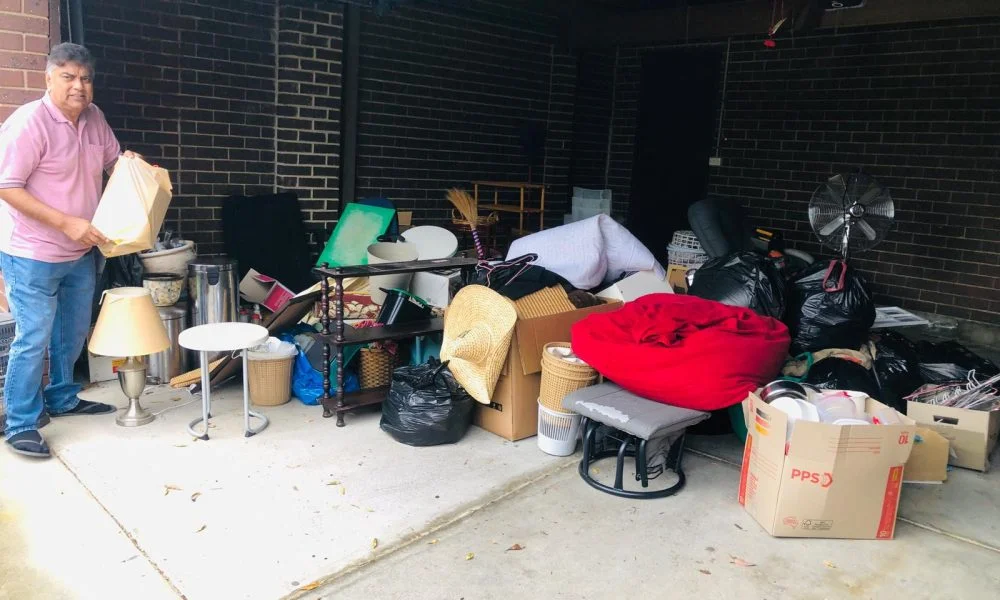Managing a deceased estate can be both emotionally and physically demanding. One of the key challenges in this process is dealing with the large amounts of rubbish that accumulate over the years. Proper handling of deceased estate rubbish is essential to ensure the property is cleared efficiently, safely, and respectfully.
Hiring professional services for deceased estate rubbish removal can significantly simplify the process. These experts bring the necessary equipment, manpower, and knowledge to manage bulky items, hazardous materials, and general waste while complying with local regulations. By engaging professionals, family members can focus on personal matters and estate planning, leaving the logistics of rubbish removal to experienced teams.
Assessing the Estate Rubbish
Before starting the cleanup, it is important to assess the volume and type of rubbish present in the estate. This includes identifying furniture, appliances, personal items, and hazardous waste. Creating a detailed inventory allows for better planning and ensures nothing of value is accidentally discarded.
Proper assessment also helps in estimating costs and timeframes for the cleanup. It can guide decisions on what items can be recycled, donated, sold, or disposed of responsibly. This step is crucial to streamline the entire process and minimize stress.
Sorting and Categorizing Items
Sorting items into categories is a vital part of handling deceased estate rubbish. Items can be grouped into:
- Keep: Valuable or sentimental belongings that family members wish to retain.
- Donate: Usable items that can benefit charities or community organizations.
- Sell: Items that hold monetary value and can be sold through estate sales or online platforms.
- Dispose: Unusable or hazardous items that need to be removed professionally.
Effective sorting reduces confusion and ensures that disposal and recycling processes are managed efficiently.
Ensuring Safety During Removal
Deceased estates often contain potentially hazardous materials such as broken glass, chemicals, old electronics, or moldy items. Safety should be a priority during any cleanup.
Professional rubbish removal teams are trained to handle these materials safely. They provide protective equipment and follow strict guidelines for lifting, transporting, and disposing of dangerous items. This approach minimizes the risk of injury to family members and avoids environmental contamination.
Proper Disposal Methods
Correct disposal of estate rubbish is not only a safety concern but also a legal obligation. Non-recyclable waste, hazardous items, and bulky debris must be disposed of according to local regulations.
Professional services often have access to specialized disposal facilities and recycling programs. This ensures that waste is managed responsibly and that hazardous materials are handled in compliance with environmental standards.
Recycling and Sustainability
Maximizing recycling is an important consideration in estate management. Items such as metal, paper, glass, and certain plastics can be diverted from landfills.
Professional teams can sort and direct recyclables to the appropriate centers, contributing to sustainability while reducing the environmental impact of estate clearance. This approach also reflects a responsible and ethical method of handling deceased estate rubbish.
Organizing Donations and Sales
Donating or selling items from a deceased estate can benefit both the community and the estate’s beneficiaries. Usable furniture, clothing, and household goods can be donated to charities, shelters, or non-profit organizations.
Valuable items can be sold through estate sales, auctions, or online platforms. Coordinating donations and sales with professional removal services makes the process seamless and ensures maximum value is recovered while unnecessary waste is minimized.
Documenting the Process
Maintaining records of all items removed, donated, or sold is essential for accountability. Documentation provides transparency for estate executors and beneficiaries and can prevent disputes over the handling of property.
Keeping detailed records also helps track financial outcomes from sales and ensures compliance with legal and tax obligations.
Planning for Continuous Maintenance
Sometimes, estate cleanup may extend over several weeks or months. Scheduling ongoing maintenance, including regular rubbish removal and property inspections, helps preserve the estate’s condition until it is sold or repurposed.
Professional services often offer ongoing support and maintenance packages, making the process more manageable for families.
Conclusion
Handling deceased estate rubbish requires careful planning, safety awareness, and professional assistance. By assessing the estate, sorting items, ensuring proper disposal, and coordinating donations and sales, families can manage the cleanup efficiently and respectfully.
Engaging expert removal services reduces stress, ensures compliance with regulations, and allows family members to focus on personal matters. With the right planning and support, deceased estate rubbish can be managed responsibly, preserving both the property’s value and the dignity of the estate.
